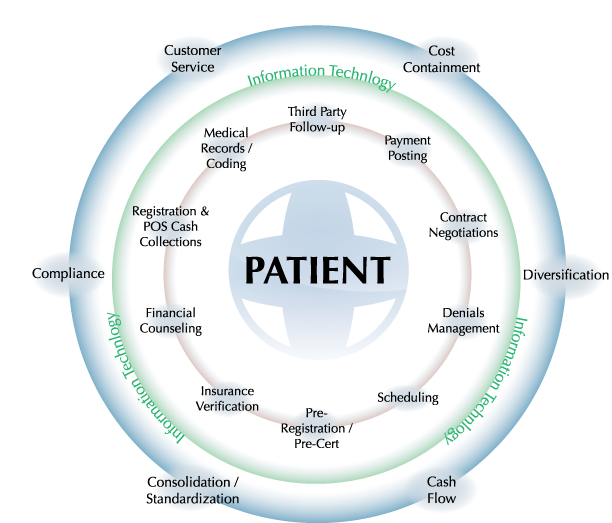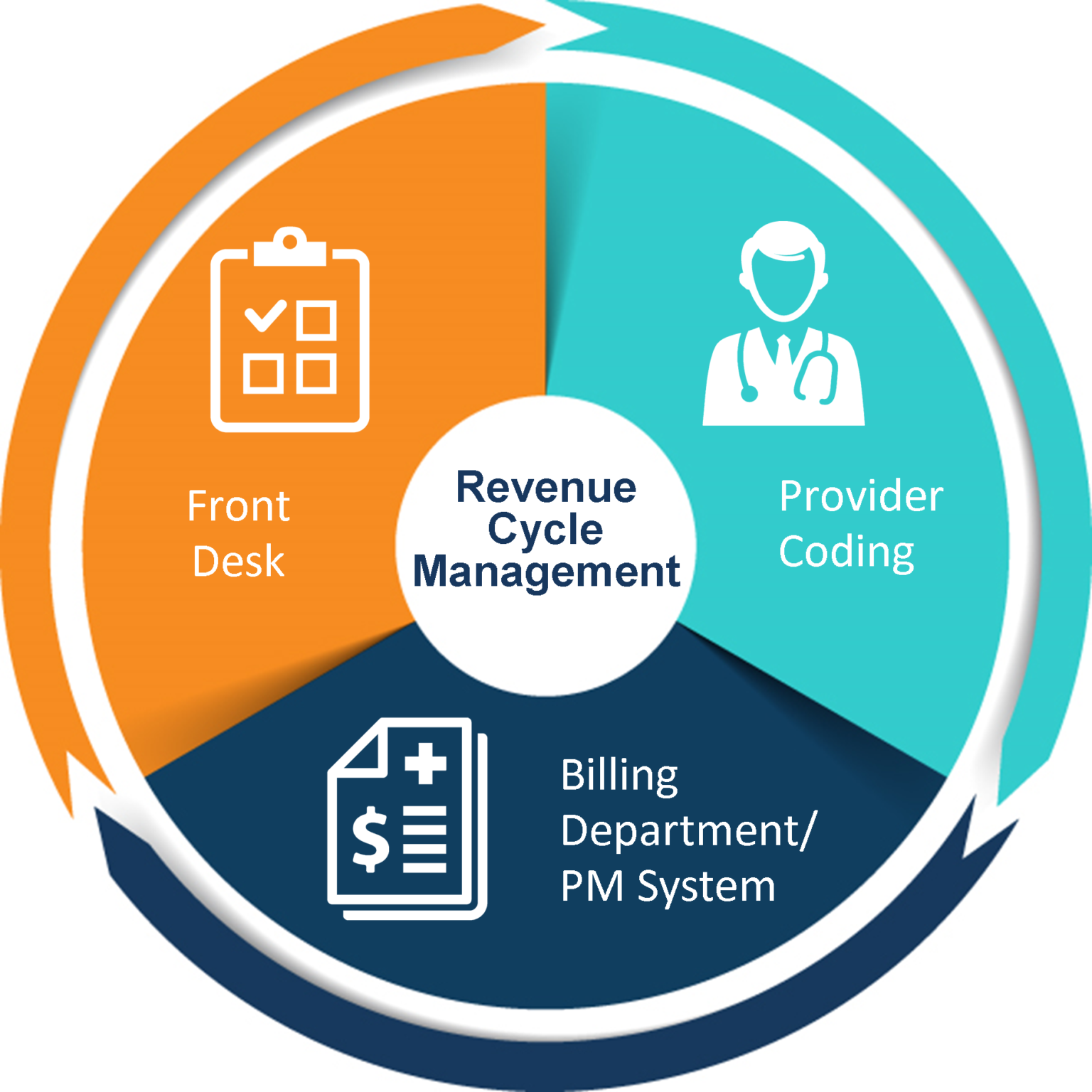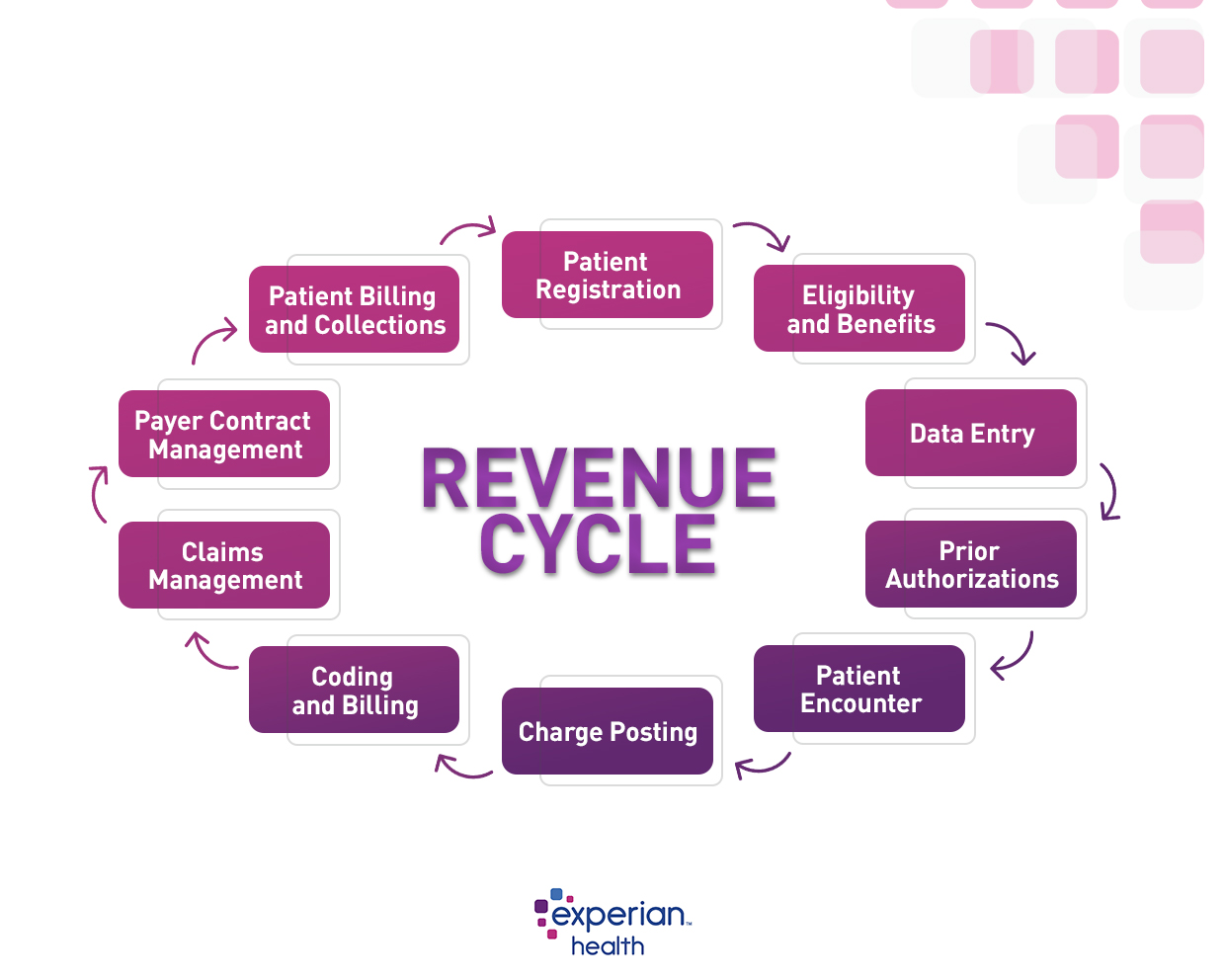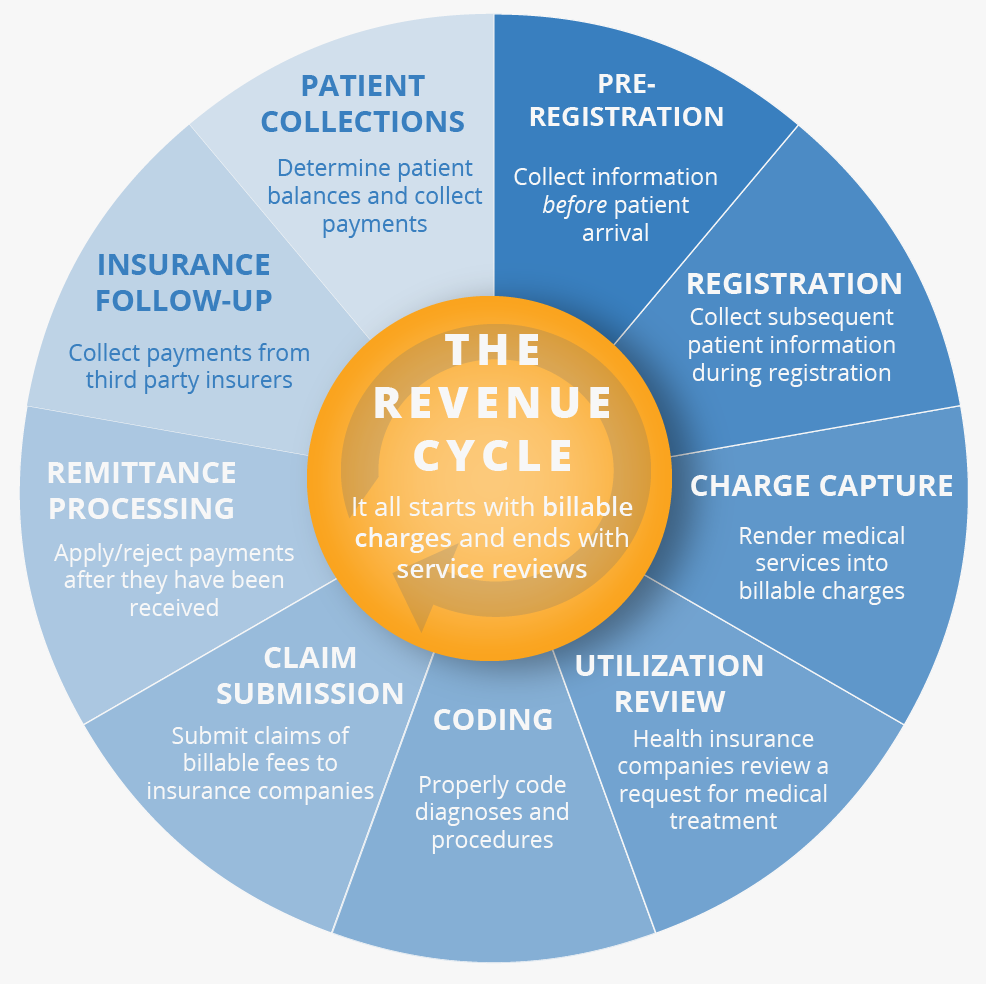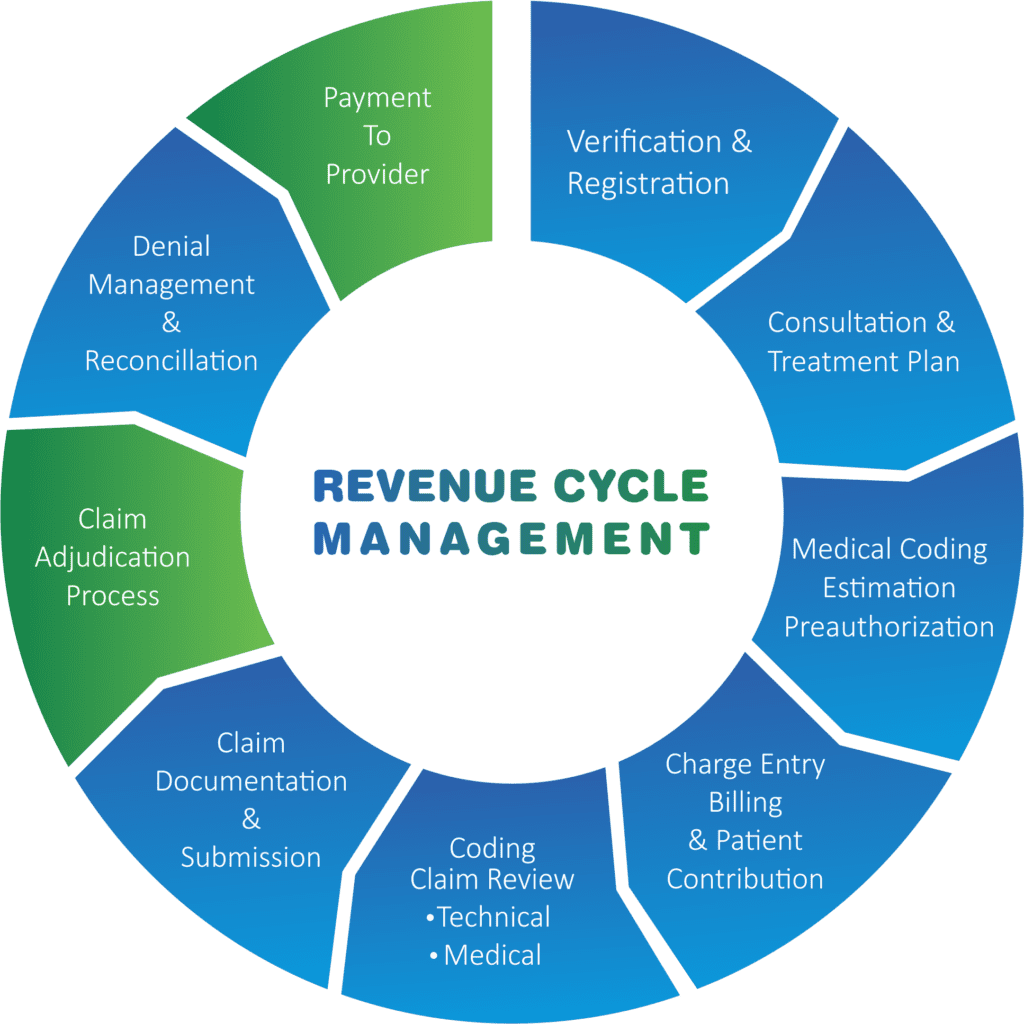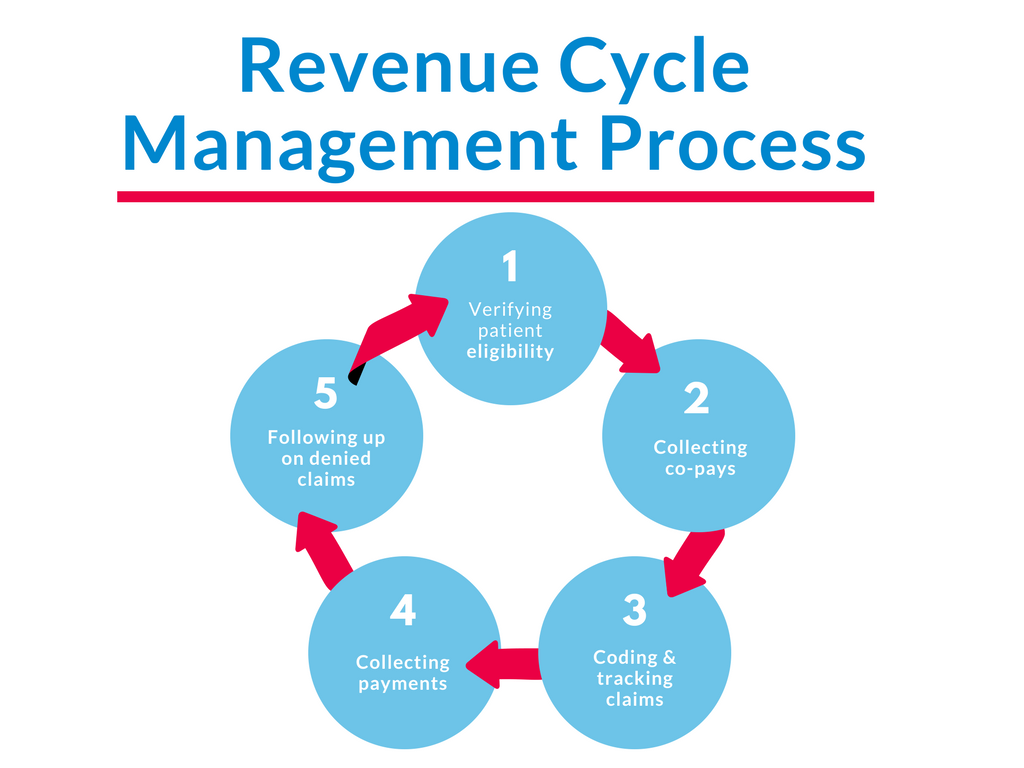Revenue Cycle Process In Healthcare
Revenue Cycle Process In Healthcare - This article reviews each of these steps, what’s. Revenue cycle management (rcm) is the process healthcare organizations use to manage financial operations related to billing and collecting revenue for medical services. Before diving into what revenue cycle management is, we need to understand why it’s needed. Revenue cycle management (rcm) is a comprehensive process in healthcare that involves the management of financial transactions and interactions between a healthcare facility and its patients throughout. The us healthcare industry continues to expand rapidly — domestic healthcare spending now accounts for more than $4.5 trillion. Revenue cycle management in healthcare is the process of tracking revenue from patients, including patient registration, claim submission, reimbursement, and communication with insurance companies, and is essential for.
The us healthcare industry continues to expand rapidly — domestic healthcare spending now accounts for more than $4.5 trillion. Revenue cycle management in healthcare is the process of tracking revenue from patients, including patient registration, claim submission, reimbursement, and communication with insurance companies, and is essential for. Revenue cycle management (rcm) is a comprehensive process in healthcare that involves the management of financial transactions and interactions between a healthcare facility and its patients throughout. Before diving into what revenue cycle management is, we need to understand why it’s needed. Revenue cycle management (rcm) is the process healthcare organizations use to manage financial operations related to billing and collecting revenue for medical services. This article reviews each of these steps, what’s.
Before diving into what revenue cycle management is, we need to understand why it’s needed. Revenue cycle management (rcm) is the process healthcare organizations use to manage financial operations related to billing and collecting revenue for medical services. Revenue cycle management (rcm) is a comprehensive process in healthcare that involves the management of financial transactions and interactions between a healthcare facility and its patients throughout. The us healthcare industry continues to expand rapidly — domestic healthcare spending now accounts for more than $4.5 trillion. This article reviews each of these steps, what’s. Revenue cycle management in healthcare is the process of tracking revenue from patients, including patient registration, claim submission, reimbursement, and communication with insurance companies, and is essential for.
Most Bang Impactful Metrics For RCM BHM Healthcare Solutions
This article reviews each of these steps, what’s. Before diving into what revenue cycle management is, we need to understand why it’s needed. The us healthcare industry continues to expand rapidly — domestic healthcare spending now accounts for more than $4.5 trillion. Revenue cycle management in healthcare is the process of tracking revenue from patients, including patient registration, claim submission,.
Healthcare Revenue Cycle Job Titles
Revenue cycle management (rcm) is a comprehensive process in healthcare that involves the management of financial transactions and interactions between a healthcare facility and its patients throughout. Revenue cycle management in healthcare is the process of tracking revenue from patients, including patient registration, claim submission, reimbursement, and communication with insurance companies, and is essential for. The us healthcare industry continues.
What role RCM for physician practices play in Healthcare?
Revenue cycle management (rcm) is the process healthcare organizations use to manage financial operations related to billing and collecting revenue for medical services. Revenue cycle management in healthcare is the process of tracking revenue from patients, including patient registration, claim submission, reimbursement, and communication with insurance companies, and is essential for. The us healthcare industry continues to expand rapidly —.
Revenue Cycle Management for Physicians Services IPMS
Revenue cycle management in healthcare is the process of tracking revenue from patients, including patient registration, claim submission, reimbursement, and communication with insurance companies, and is essential for. This article reviews each of these steps, what’s. The us healthcare industry continues to expand rapidly — domestic healthcare spending now accounts for more than $4.5 trillion. Revenue cycle management (rcm) is.
Revenue Cycle Flowchart A Complete Guide
This article reviews each of these steps, what’s. Revenue cycle management in healthcare is the process of tracking revenue from patients, including patient registration, claim submission, reimbursement, and communication with insurance companies, and is essential for. Revenue cycle management (rcm) is the process healthcare organizations use to manage financial operations related to billing and collecting revenue for medical services. The.
Deep diving into a successful healthcare revenue cycle flowchart
Revenue cycle management (rcm) is the process healthcare organizations use to manage financial operations related to billing and collecting revenue for medical services. This article reviews each of these steps, what’s. Revenue cycle management (rcm) is a comprehensive process in healthcare that involves the management of financial transactions and interactions between a healthcare facility and its patients throughout. Revenue cycle.
The 9 Steps of Healthcare Revenue Cycle Management Explained
Revenue cycle management (rcm) is the process healthcare organizations use to manage financial operations related to billing and collecting revenue for medical services. Revenue cycle management (rcm) is a comprehensive process in healthcare that involves the management of financial transactions and interactions between a healthcare facility and its patients throughout. The us healthcare industry continues to expand rapidly — domestic.
A Complete Guide To Improve Revenue Cycle Management Wenour
Revenue cycle management (rcm) is the process healthcare organizations use to manage financial operations related to billing and collecting revenue for medical services. Revenue cycle management in healthcare is the process of tracking revenue from patients, including patient registration, claim submission, reimbursement, and communication with insurance companies, and is essential for. The us healthcare industry continues to expand rapidly —.
A Simple Explanation of Revenue Cycle Management TPA Stream
Before diving into what revenue cycle management is, we need to understand why it’s needed. Revenue cycle management (rcm) is the process healthcare organizations use to manage financial operations related to billing and collecting revenue for medical services. Revenue cycle management (rcm) is a comprehensive process in healthcare that involves the management of financial transactions and interactions between a healthcare.
The Significance of a Medical Revenue Cycle Management System
This article reviews each of these steps, what’s. Revenue cycle management (rcm) is the process healthcare organizations use to manage financial operations related to billing and collecting revenue for medical services. Revenue cycle management (rcm) is a comprehensive process in healthcare that involves the management of financial transactions and interactions between a healthcare facility and its patients throughout. Revenue cycle.
Before Diving Into What Revenue Cycle Management Is, We Need To Understand Why It’s Needed.
The us healthcare industry continues to expand rapidly — domestic healthcare spending now accounts for more than $4.5 trillion. Revenue cycle management (rcm) is the process healthcare organizations use to manage financial operations related to billing and collecting revenue for medical services. This article reviews each of these steps, what’s. Revenue cycle management (rcm) is a comprehensive process in healthcare that involves the management of financial transactions and interactions between a healthcare facility and its patients throughout.
